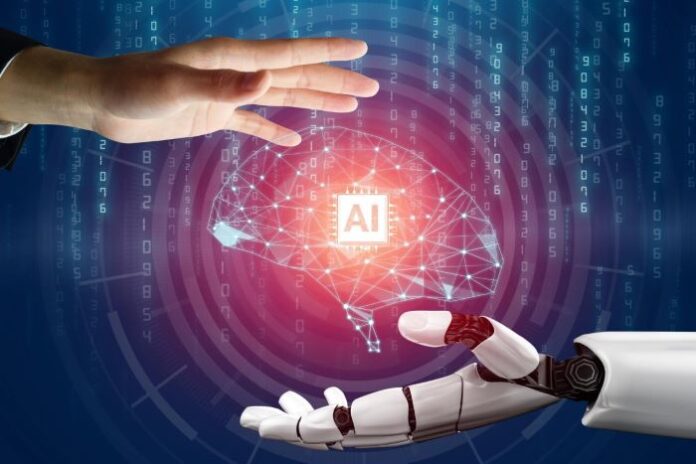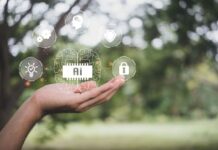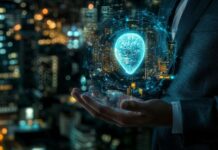AI is not only transforming the tools we use but is also becoming integral to personal and professional development across various industries. As AI continues to redefine the boundaries of technology, its adoption is expected to increase dramatically over the next several years.
Currently, AI is a top priority for approximately four out of five companies. Among these, 35% of businesses have already incorporated AI technologies into their operations. This trend is projected to expand. AI’s role broadens from basic corporate tech stacks to more complex applications in education, healthcare, economic development, and human development.
Key Takeaways
- AI is transforming personal and professional development across industries, with increasing adoption in businesses.
- Tools like Salesforce and ServiceNow enhance workplace efficiency by automating tasks and identifying skill gaps.
- TAIWA provides AI coaching to bridge cultural and communication gaps, ensuring continuous professional development.
- Data privacy and algorithmic bias present challenges, requiring secure and ethical AI integration into human development.
- The integration of AI marks a new era in technology-enhanced growth, emphasizing innovation and ethical considerations.
Enhancing Workplace Efficiency and Skills
Within the modern workplace, platforms like Salesforce and ServiceNow offer some of the most recognizable AI capabilities in professional settings. These are platforms that people will be familiar with. Salesforce uses AI to enhance customer relationship management. It does so by predicting customer behaviors, personalizing customer interactions, and automating administrative tasks.
Similarly, ServiceNow implements AI to streamline workflow and operations management. Its AI capabilities allow for the automation of routine processes and optimization of workflow designs. This helps organizations reduce bottlenecks and enhance productivity. By integrating these AI tools, employees can address skill gaps more effectively. They are better prepared for future challenges in dynamic work environments.
This proactive approach to skill enhancement and development is essential in industries that demand continual learning and adaptation. AI systems not only identify gaps but also recommend targeted training modules tailored to individual needs. For example, an AI platform might analyze an employee’s performance data. It might suggest specific online courses or in-house training sessions to enhance skills in areas like project management or digital marketing.
By leveraging advanced AI platforms, companies ensure their workforce is well-versed in current roles and functions. Additionally, employees are equipped with the knowledge and tools needed for future opportunities. This strategic application of AI fosters a more agile, skilled, and competitive workforce. It enhances human development and prepares employees to meet evolving demands in the global market.
AI’s Role in Bridging Cultural and Communication Gaps
Another area where AI excels is in bridging cultural and communication gaps within global organizations. Amid concerns that AI may exacerbate workplace homogeneity by imposing standardized communication norms, platforms like TAIWA challenge this narrative. These platforms foster an inclusive environment. While the fear persists that AI might simplify communication styles at the cost of cultural uniqueness, TAIWA addresses these concerns. It does so by offering deeply personalized AI coaching experiences.
TAIWA functions as a platform where an employee’s AI professional coach is hosted. It provides support directly within the organization, not serving as an intermediary. For instance, when a professional coach is unavailable, whether due to scheduling conflicts, high demand, affordability issues, or other reasons, the AI professional coach can fill this gap.
This ensures that employees across all ranks and files always have access to professional AI coaching and support, enabling continuous professional development and guidance at the time of need and without interruption. However, this AI integration into the workplace serves as a reliable backup or alternative to the more expensive human coaches, offering personalized, AI-driven professional coaching that adapts to the individual’s specific needs and circumstances. This setup not only enhances the availability of support but also enriches the coaching experience, ensuring all team members have the personalized resources they need to succeed at any given time.
Bias and Privacy Concerns
The integration of AI into human development does present certain challenges, particularly concerning data privacy and algorithmic bias. One example of AI bias occurred with an image-recognition AI. It misclassified images of people based on skin color, mistakenly labeling darker-skinned individuals inappropriately. This isn’t due to overt programming choices. It results from historical data patterns that the system learned during training.
For me, tackling these concerns is a priority. Thus, our team is dedicated to making its AI inherently secure and compliant with regulatory standards. All data within the platform is encrypted and safeguarded with advanced security measures. This ensures high levels of data privacy. Beyond legal requirements, we focus on creating an ethical and human-centric AI. This includes adhering to major international professional coaching standards. These guide the development of AI systems to be unbiased and supportive of diverse human needs.
A New Era of AI-Driven Development
The integration of AI into human development represents a new era of technology-enhanced growth. As AI technology becomes more advanced and accessible, its role in supporting and enhancing human capabilities will undoubtedly increase. This shift calls for continued innovation, thoughtful integration of AI tools, and a steadfast commitment to addressing ethical challenges. The journey of AI in human development is just beginning. Its full potential is yet to be realized.











